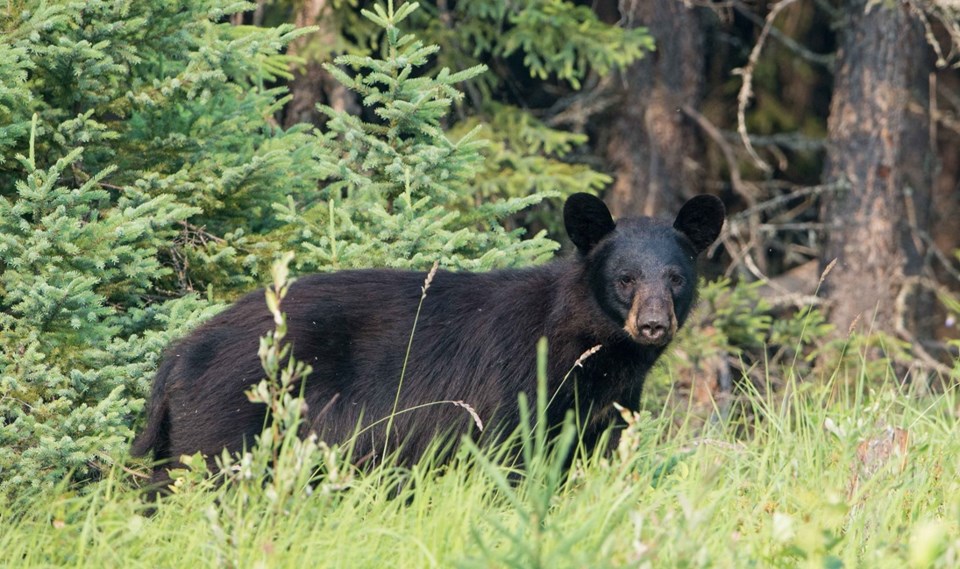REGINA — Summer is a great time for people to be outdoors and it's also an important time for black bears to maintain and build their fat stores in preparation for winter.
Black bears are common across much of Saskatchewan, and it is normal to see black bears in the wild, advises Sask. Environment.
They are intelligent and ruled by their stomachs; if they cannot find food in one area, they will move along to another. You can reduce the likelihood of human-bear conflict by keeping spaces such as yards and campsites free of attractants like garbage, un-cleaned barbecues, bird feeders and pet food.
If you come across a bear, stay calm and enjoy your sneak peek of nature at work. In most cases the bear will already be moving on. However, keep yourself and bears safe by remembering these important tips:
- Hike in groups and let bears know you are in the area by talking, singing or carrying a bell when you are hiking.
- Never feed or approach a bear or cubs.
- Stay calm, don't run.
- If you must pass a bear, make a wide detour, back away - speaking firmly and calmly - and don't look directly at the bear.
- Move toward a vehicle, building, tree, rock or other cover.
- Do not climb a tree; black bears are excellent climbers.
- If the bear continues to approach, drop an article of clothing such as a jacket or hat to distract the bear.
- Get out your bear spray and prepare to use it.
- In most cases, black bears will threaten but not attack. If attacked, defend yourself; do not play dead.
If a bear or any other wildlife poses an immediate risk to people's safety, call 911. To report an encounter with aggressive wildlife, call the Turn in Poachers and Polluters (TIPP) line at 1-800-667-7561. Concerns regarding bears or other nuisance wildlife can be reported to the Ministry of Environment by calling 1-800-567-4224 or email [email protected].
Further information about bears and bear safety is available at .




